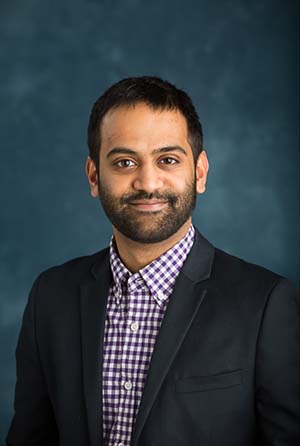Post developed by Katie Brown in coordination with Muzammil Hussain.
 This post is a special edition of our researcher profile series. We’re very pleased to welcome Muzammil Hussain to the Center for Political Studies (CPS)!
This post is a special edition of our researcher profile series. We’re very pleased to welcome Muzammil Hussain to the Center for Political Studies (CPS)!
Hussain’s research began in 2005 at University of Wisconsin – Madison, where he completed his Bachelor of Science degree at the School of Journalism and Mass Communication. Intrigued by political communication research, Hussain sought to take the American orientation of the field into parallel domains. In particular, he turned to Bangalore, India – his hometown. Hussain received a fellowship to study the social contexts and consequences of “new media” in Bangalore internet cafes, covering all types of neighborhoods: slums, religious, separated, and class-based. He also applied a variety of methods to his fieldwork in these diverse contexts.
His research interests intensified at the University of Washington, where he relocated in 2008 to pursue his M.A. and Ph.D. in Communication. Over the last three years, Hussain has shifted his research focus to political systems. In particular, his research asks how technology diffusion is a politicized, transnational project. That is, how the deployment of new internet infrastructure not only shapes the ways people use digital media in political ways, but fundamentally how these new opportunities for participation and mobilization are afforded, structured, and regulated by state powers.
His research has culminated in two book projects. Democracy’s Fourth Wave? Digital Media and the Arab Spring (OUP 2013) compares the Arab Spring in depth in 22 nations. State Power 2.0 (Ashgate 2013) is an edited volume that includes scholars from advanced democratic, authoritarian, and emerging democratic nations.
Through his field research and international stays, Hussain has seen first hand the key role state governments play in the evolution of media systems. In the future, he seeks to bring governmental systems, not just social actors, into the equation of his research. Post-internet democracies, Hussain says, are characterized as increasingly technocratic. Comparative analysis shows both advanced democracies and recalcitrant dictatorships treating public information infrastructure in surprisingly similar ways.
Muzammil Hussain is excited to be a member of both the Department of Communication Studies and the Center for Political Studies. He seeks to root his research in the areas of media studies and political communication, while drawing on the comparative ethos of political studies. These lenses allow a more comprehensive picture of comparative digital politics to emerge. Before relocating to Ann Arbor this January, Hussain completed a fellowship at the Qatar Computing Research Institute (Doha, Qatar) investigating digital activism surrounding the post-Arab Spring electoral politics in Tunisia and Yemen.

